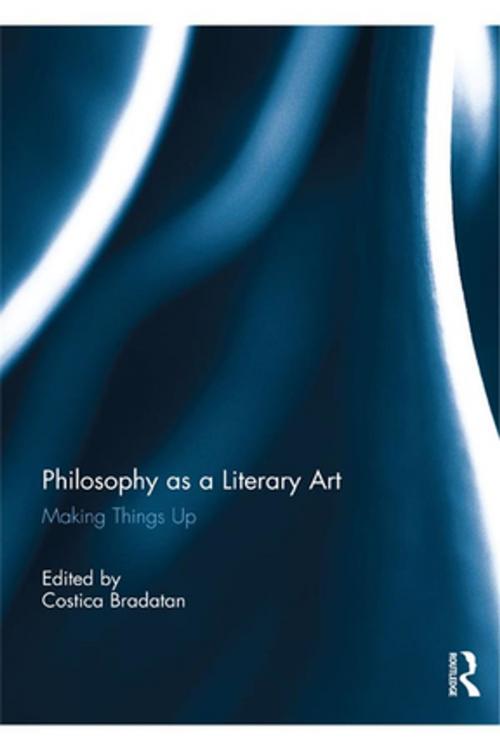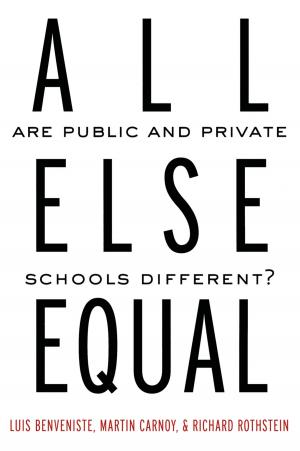| Author: | ISBN: | 9781317647089 | |
| Publisher: | Taylor and Francis | Publication: | April 14, 2016 |
| Imprint: | Routledge | Language: | English |
| Author: | |
| ISBN: | 9781317647089 |
| Publisher: | Taylor and Francis |
| Publication: | April 14, 2016 |
| Imprint: | Routledge |
| Language: | English |
Despite philosophers’ growing interest in the relation between philosophy and literature in general, over the last few decades comparatively few studies have been published dealing more narrowly with the literary aspects of philosophical texts. The relationship between philosophy and literature is too often taken to be "literature as philosophy" and very rarely "philosophy as literature." It is the dissatisfaction with this one-sidedness that lies at the heart of the present volume. Philosophy has nothing to lose by engaging in a serious process of literary self-analysis. On the contrary, such an exercise would most likely make it stronger, more sophisticated, more playful and especially more self-reflexive. By not moving in this direction, philosophy places itself in the position of not following what has been deemed, since Socrates at least, the worthiest of all philosophical ideals: self-knowledge.
This book was originally published as a special issue of The European Legacy.
Despite philosophers’ growing interest in the relation between philosophy and literature in general, over the last few decades comparatively few studies have been published dealing more narrowly with the literary aspects of philosophical texts. The relationship between philosophy and literature is too often taken to be "literature as philosophy" and very rarely "philosophy as literature." It is the dissatisfaction with this one-sidedness that lies at the heart of the present volume. Philosophy has nothing to lose by engaging in a serious process of literary self-analysis. On the contrary, such an exercise would most likely make it stronger, more sophisticated, more playful and especially more self-reflexive. By not moving in this direction, philosophy places itself in the position of not following what has been deemed, since Socrates at least, the worthiest of all philosophical ideals: self-knowledge.
This book was originally published as a special issue of The European Legacy.















